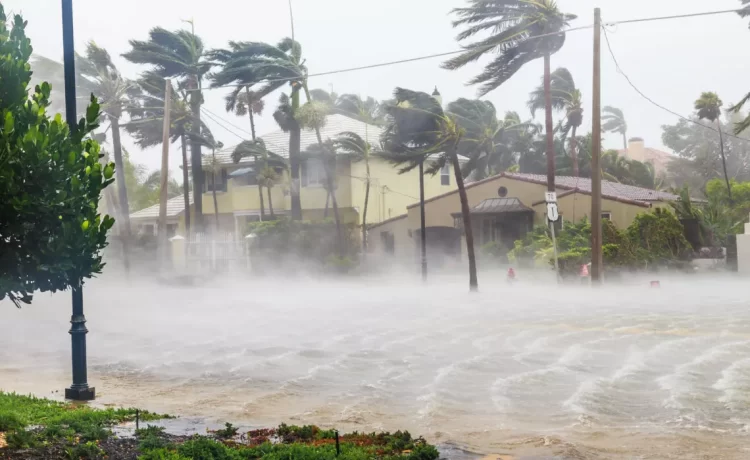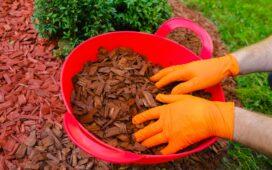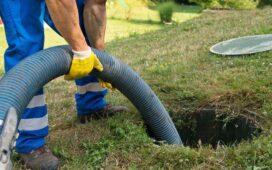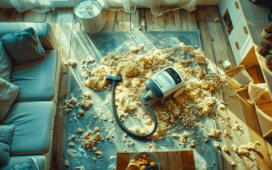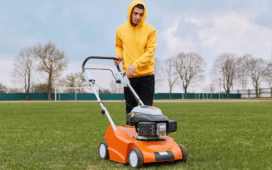Living in Florida, you’re no stranger to the threat of hurricanes and the financial burden they can impose on homeowners. The true cost of wind damage goes beyond immediate repairs; it can lower your property’s value and strain your finances long-term. Are you taking the right steps to fortify your home against these powerful forces? From selecting impact-resistant materials to understanding your insurance coverage, there’s a lot to contemplate. But have you truly explored all the options available to safeguard your investment?
Assessing Wind and Water Damage Costs
Understanding the potential costs of water and wind damage is vital when protecting your Florida home from hurricane threats. You need to take into account various factors that contribute to these costs, including structural damage, roof repairs, and window replacements. High winds can rip off shingles, cause leaks, and even tear apart whole sections of your roof. Each of these damages requires immediate attention and can be costly, potentially reaching thousands of dollars in repairs.
You should also reflect on the interior damage that wind-driven rain can cause. Once your roof or windows are compromised, water intrusion can ruin your walls, floors, and personal belongings. This means you might face additional costs for mold remediation and replacing damaged furniture or appliances.
It’s imperative to assess these potential damages proactively so you can budget for unexpected expenses.
Don’t forget about the importance of insurance. Reviewing your current homeowners insurance policy will help you understand what’s covered and what isn’t. You might need to increase your coverage or add specific windstorm insurance to guarantee extensive protection.
Impact on Home Value
The value of your home can considerably decline due to hurricane damage, impacting your financial stability and future resale potential. When a hurricane strikes, it doesn’t just harm the physical structure; it also affects your property’s market appeal. Prospective buyers may be wary of homes with a history of hurricane damage, fearing future repairs or costs. This hesitation can lead to lower offers or longer time on the market when you decide to sell.
Moreover, visible damage like interior water damage, roof issues, water stains, or compromised foundations can drastically reduce your home’s appraisal value. Appraisers take into account the condition of your home and any necessary repairs when determining its worth. If your home shows signs of hurricane damage, you might face a lower appraisal, affecting your ability to refinance or obtain home equity loans.
To mitigate these impacts, it’s crucial to invest in preventative measures, such as storm shutters or reinforced roofing.
Regular maintenance and prompt repairs after a storm demonstrate to potential buyers and appraisers that your home is well cared for. By actively protecting your home, you not only preserve its value but also maintain its desirability in the competitive Florida housing market.
Insurance and Financial Implications
When it comes to safeguarding your home, insurance plays an essential role in protecting your financial well-being. Living in Florida, you know hurricanes are a reality, and having the right insurance policy can make a world of difference.
Homeowners insurance typically covers wind damage, but you’ll want to check if your policy includes hurricane-related specifics. Some policies might require a separate windstorm or hurricane deductible, which can be costly. It’s vital to review your policy carefully and understand what’s covered and what isn’t.
Filing an insurance claim after a hurricane can sometimes be a complicated process. Document everything before and after a storm hits. Taking photos or videos of your property can serve as invaluable evidence for your claim.
Keep all receipts for temporary repairs or additional living expenses, as these can be reimbursed under your policy. Financially, you’ll face out-of-pocket costs like deductibles and possibly higher premiums after a claim.
Consider setting aside an emergency fund dedicated to potential hurricane damage. Talk to your insurance agent about policy adjustments that might better suit your needs. This proactive approach can help mitigate financial stress when hurricanes strike, ensuring you and your home remain protected.
Strengthening Your Home
While insurance provides financial protection, fortifying your home against hurricanes reduces potential damage and stress. Strengthening your home is like giving it armor against the fierce winds and flying debris that accompany these storms.
Start by inspecting your roof, as it’s a primary target during hurricanes. Confirm that shingles are secure and consider installing hurricane straps to keep the roof attached to the walls more securely. This simple addition can greatly enhance your home’s resilience.
Windows and doors are vulnerable entry points for wind and water. Install impact-resistant windows or storm shutters to prevent breakage. Reinforce doors with stronger hinges and deadbolts, particularly garage doors, as they’re often weak spots. Sealing any gaps in doors and windows will also help keep out water and wind.

